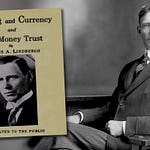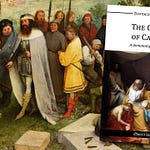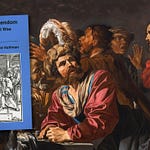Dive deep into the shocking truth behind conflict with Brigadier General Smedley Darlington Butler’s seminal work, War Is a Racket. This antiwar classic, written in 1935, remains profoundly relevant today. The video explores the arguments of America’s Most Decorated Soldier, exposing war as “the oldest, easily the most profitable, surely the most vicious” scheme, run for the benefit of “the very few, at the expense of the very many”.
Learn how General Butler, nicknamed “The Fighting Quaker” and “The Old Gimlet”, served 34 years in the Marine Corps, earning the Medal of Honor twice. After his retirement in 1931, Butler confessed that he had spent most of his military career acting as a “high-class muscle man for Big Business, for Wall Street and the bankers”. He famously stated he was “a racketeer, a gangster for capitalism,” operating “on three continents”.
Discover the specific global interventions Butler carried out for financial interests, including: helping the American fruit companies in Honduras (1903); purifying Nicaragua for the International Banking House of Brown Brothers (1902–1912); making Tampico, Mexico, safe for American oil interests (1914); bringing “light to the Dominican Republic for the American sugar interests” (1916); aiding the National City Bank in Haiti and Cuba; and protecting Standard Oil in China (1927).
The video details the explosive Fascist plot Butler uncovered in 1934, where wealthy New York brokers asked him to lead a movement to set up a dictatorship in the United States. Butler testified about this conspiracy before the House McCormack-Dickstein Committee. Key figures implicated include bond salesman Gerry MacGuire (employed by financier Grayson Murphy), and Robert S. Clark, an heir to the Singer Sewing Machine fortune. The plotters, who were anti-New Deal, included backers of the American Liberty League such as the Rockefellers, Mellons, and Pews, as well as John W. Davis (Morgan banking interests) and Al Smith (DuPont associate).
Examine the massive profits made by industrialists during World War I. Figures show that companies like the du Ponts saw average yearly profits increase by more than 950%. Bethlehem Steel saw profits jump to $49,000,000 a year, and United States Steel profits averaged $240,000,000 annually during the war period (1914–1918). Other companies, including Anaconda and International Nickel Company, also garnered immense “blood profits”.
Learn Butler’s radical plan to smash this racket: take the profit out of war. He demands that capital, industry, and labor be conscripted one month before manhood, restricting all executives, bankers, politicians, and generals to the same $30 monthly wage paid to the soldier in the trenches.
This crucial anti-war message, featuring an introduction by Jesse Ventura, demands that Americans heed the warning that war’s true cost is paid by the soldier in “newly placed gravestones. Mangled bodies. Shattered minds”. Attend to our own business to avoid being dragged into conflicts driven by dollars and cents.
Thanks to the generosity of my readers, all my articles are available for free access. Independent journalism, however, requires time and investment. If you found value in this article or any others, please consider sharing or even becoming a paid subscriber, who benefits by joining the conversation in the comments. I want you to know that your support is always gratefully received and will never be forgotten. Please buy me a coffee or as many as you wish.
The Duke Report - Where to Start
My articles on SubStack are all free to read/listen to. If you load the Substack app on your phone, Substack will read the articles to you. (Convenient if you are driving).
Foundational Articles
Podcast (Audio & Video Content)
Palmerston’s Zoo Episode 01 - Solving the Paradox of Current World History (9 Episodes)
Oligarchic Control from the Renaissance to the Information Age
SoundCloud Book Podcasts
I’ve taken almost 200 foundational books, for understanding how the world really works, and posted them as audio podcasts on SoundCloud. If you load the app on your phone, you can listen to the AI robots discuss the books on your journeys across America.
Duke Report Books
Over 600 foundational books by journalists and academics that never made the New York Times Bestseller list, but somehow tell a history we never learned in school. LINK












